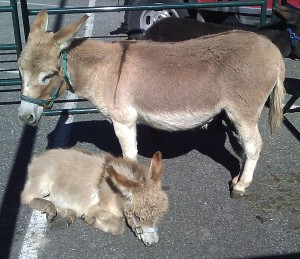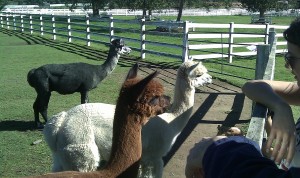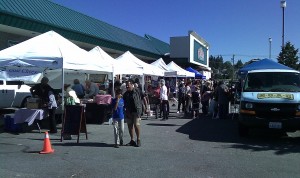After today’s delightful meeting of Slow Food Port Susan, where we got to chat about all the potential for local, organic farming and the good things that come from it, I thought I would post links to the resources I’ve found so far. There are a few. First, the farming links:
- The USDA Farmers Market site, with lots of information on funding, resources, and other ways to market your produce.
- Washington State’s Guide for Farmers Markets has resources for insurance, funding, and it looks like there is a conference coming up.
- The Small Farms Conservancy has many resources for small farmers, including access to land, job opportunities, access to insurance, education, etc.
- The Small Farmers Journal has fantastic information on all aspects of farming, whether or not you use horses. I’ve been reading it for years and I’m always surprised by how much I learn in every edition. They also sponser a fantastic 3-day auction in Madras, Oregon, every spring. I’ve picked up some great equipment and advice there.
- The Healing Harvest Forest Foundation promotes healthy forests through sustainable, animal-powered forestry practices. The site explains much more about this eastern US-based group.
- Jon at Open Gate Farm told me about World Wide Opportunities on Organic Farms (WWOOF), which gets apprentices and temporary workers onto small farms so that they can learn new techniques and share knowledge. It’s an international group, so people can exchange ideas worldwide. How fun is that? (Thanks Jon!) (And how weird is it that the URL is shorter than the name of the group?)
- Crop Mob is a new idea started in North Carolina. (There is now a Seattle chapter, as well.) This group is made up of people who enjoy farming but aren’t able to yet. (Yes, farmer wannabees!) Instead, they volunteer to help on small farms when many hands are needed. They are volunteers who will assist with planting and harvesting and who only ask for a good meal and a chance to spend some time in the country in return. It’s a win-win for everyone.
Then, the geek links (yes, you can geek and farm at the same time):
- The UK has a concerted effort to extend broadband access to its rural areas: Rural Broadband.
- Worldometers – this site has constantly running statistics on many interesting things including food, ecology, water, and energy.
- The fastest broadband speed in the US you would think would be in some happening urban area. Not so! It’s actually in Ephrata in rural Grant county. No kidding. It’s Grant County PUD.
That’s it so far. If you have some I should pass along, please send them to me.



